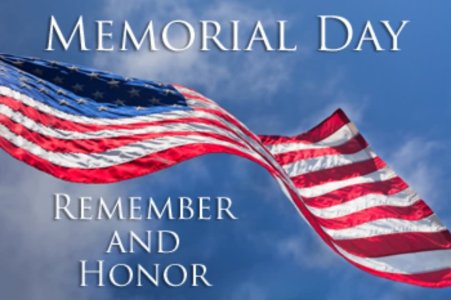It was just after midnight on February 3, 1943, when the frigid black waters of the North Atlantic swallowed the USAT
Dorchester—and with it, four of the most extraordinary men ever to wear the uniform of the United States Army.
They were not warriors in the conventional sense. They carried no rifles. They stormed no beaches. Yet their sacrifice belongs in the same sacred register as those who fell in service—men like Charles Whittlesey, Butch O’Hare, and John Basilone—whose courage cost them everything.
Their names—George L. Fox, Alexander D. Goode, John P. Washington, and Clark V. Poling—should be etched in our civic memory, recited alongside the Gettysburg Address and Lincoln’s Second Inaugural. That they are not is a national oversight Memorial Day ought to correct.
The
Dorchester was a converted passenger liner, part of a convoy transporting over 900 American servicemen to a remote Army base in Greenland. Aboard were cooks, medics, engineers, and four chaplains—each of a different faith: Fox, a Methodist minister; Goode, a Jewish rabbi; Washington, a Catholic priest; and Poling, a Dutch Reformed pastor.
They had met at the Army Chaplains School at Harvard the year before. But what they shared—a belief in service over self—would soon bind them forever.
At 12:55 a.m., a German U-boat torpedo struck the USAT
Dorchester, ripping open the hull below the waterline. Power failed. The ship listed sharply. Chaos erupted. Men scrambled for lifeboats—many of which jammed or capsized. Some panicked and jumped overboard, only to die of exposure within minutes in the icy ocean.
Yet amid the carnage, survivors recalled a calm center: the chaplains, moving deck to deck, offering prayers, guiding men to safety, handing out life jackets. When the supply ran out,
they gave away their own.
“It was the finest thing I have seen or hope to see this side of heaven,” said John Ladd, a survivor who witnessed their final act.
Private William B. Bednar, one of the last to escape, would later testify: “I could hear the chaplains preaching courage. Their voices were the only thing that kept me going.”
The last sight of the ship was unforgettable: the four chaplains, arms linked in prayer, standing together on the tilting deck as the
Dorchester slipped beneath the waves.
They did not die for their own kind. They died for mankind, so that others may live.
Their heroism was immediate and undeniable. Together, they were lauded as the “Immortal Chaplains”—a testament to their sacrifice, an example for the ages.
In 1951, a chapel bearing their name was dedicated in Philadelphia. Postage stamps, murals, and a stained-glass window in the Pentagon pay tribute.
Yet bureaucratic rigidity denied them the Medal of Honor. Congress responded, and the Eisenhower administration awarded the special Four Chaplains’ Medal in its final days, in January 1961—recognizing their extraordinary heroism beyond the call of duty. It has never been awarded again.
Yet outside of veterans’ circles and military historians, their story is too often relegated to footnotes.
It should not be. The story of the Four Chaplains is not merely a tale of wartime courage.
It is a parable of national character. Four men of different faiths—Methodist, Catholic, Jewish, and Reformed—linked arm in arm, choosing death so others might live. In the truest sense, it is what Lincoln called “the better angels of our nature.”
They remind us what Memorial Day is—and is not. It is not a long weekend. It is not for cookouts or the pursuit of discount appliances.
Instead, it is for remembering the fallen—those who made the supreme sacrifice—not only the famous or the decorated, but those whose final acts defined the country they served.
Carl Sandburg once wrote, “Valor is a gift. Those having it never know for sure whether they have it till the test comes.”
Men like Clark Poling understood that truth in their bones. Before deploying, he wrote to his father:
“I know I shall have your prayers… Just pray that I shall be adequate.”
He was. They all were. And in their final moments, they gave America more than an example—they gave us a legacy.
At a moment in history when we need heroes more than ever, let us at last remember the Four Chaplains—and make their memory immortal once more.
In an age of division and distrust, when our culture often seems more interested in tearing down than building up, the Four Chaplains offer something rare: a vision of unity through sacrifice.
They didn’t argue theology. They didn’t insist on orthodoxy. This Memorial Day, let us remember them—not as distant relics of an old war, but as timeless stewards of courage, conviction, and brotherhood.
The nation they died for still exists, if we choose to preserve it—with unity without uniformity.
One act of selflessness. One prayer. One life jacket at a time. They lived their faith in the most profound way possible—by laying down their lives for others.
With arms locked together, they embodied a quiet nobility that transcends time—and in doing so, earned what few ever truly achieve: an immortal place in the American story.
Charlton Allen


